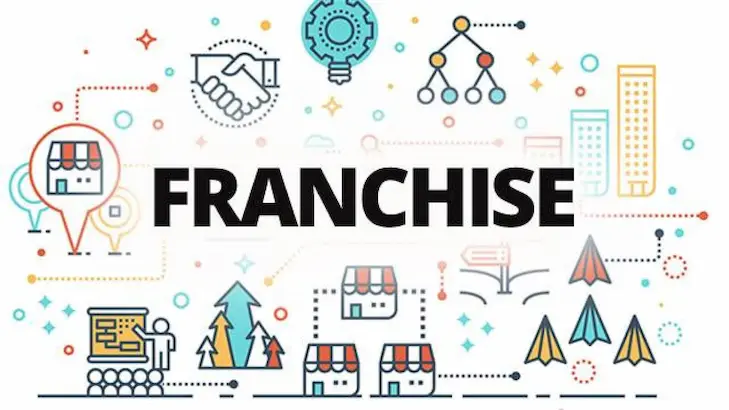Franchising has been in existence for over a century. The history of franchising dates back to the 1850s when Isaac Singer, founder of Singer Sewing Machines, began selling licenses to entrepreneurs to sell his sewing machines in different parts of the world.
However, in the mid-20th century, franchising gained significant attention as a means of entering the financial territory. It remains a popular business model that changes the industry’s economic and financial trajectory.
This article will explore how licensed enterprises change the world of work and why investors and entrepreneurs should pay close attention.

Understanding This Kind Of Operative Structure
The first section of this article will provide an overview of what these contracts entail. This will include a detailed explanation of owning in this landscape, contracts and agreements, fees, and other critical aspects of the industry.
The Concept Of Owning In This Space
This concept is where an existing organizational owner (the franchisor) grants the right to another person or party (the buyer) the right to use their brand name, operating system, and contributions.
This means the buyer pays for the right to operate their enterprise under the leadership’s brand name and earns a percentage of the revenue.
The Contract And Policy
To become an owner, one has to sign a settlement or agreement with the franchisor. This commitment outlines the terms and conditions of the professional relationship, including the dealer’s support, the buyer’s obligations, and operating fees.
Finances And Assistance
The head owners of the organizations receive royalties and other fees from new owners, including initial, management, and advertising funding.
In return, they support the buyer, including development and training, management assistance, and other resources to ensure victory and success.
Also Read: 8 Things to Consider Before Investing in a Franchise
Access to Expertise And Knowledge
To become an expert in a particular territory, you need to practice your craft daily and put in the hours.
One of the most important aspects of owning a company is having access to expert knowledge and assistance that you would otherwise not have benefited from.
This means entrepreneurs do not need prior information or knowledge about the discipline they enter. They can rest assured knowing that the deep-rooted processes and structures are pre-established. So they can get back to running the corporation’s daily tasks and objectives.
The Evolution of These Enterprises

When considering building a franchise, looking back at history and understanding what you’re dealing with is good.
Franchising has evolved significantly over the years. Initially, it was seen as a way to expand an idea by selling licenses to individuals who wanted to operate under an established brand.
However, this kind of specialization has become a complete operational guideline that provides prospective buyers with the tools they need to evolve to thrive and reach their full potential.
These organizations have evolved from fast food establishments and retail stores to include companies in the service and technology industry.
How They’re Changing the Economic Landscape
The remunerative division is constantly shifting, developing, and unfolding every day – as a result, entrepreneurs are finding new ways to stay relevant and ahead of the curb.
They must remain current and at the forefront of the industry to assess the landscape and enter a new field.
These establishments are a significant contributor to the economy. In 2021, the International Franchise Association (IFA) Economic Outlook Report projected that patented companies would generate $477 billion in economic output, a 6.2% increase from 2020.
Additionally, the franchising industry will create 14,000 new establishments and 800,000 new jobs in 2021. These operations allow traders to operate their establishments under an established brand, reducing the risks of starting from scratch.
Moreover, they provide communities with goods and services that meet their needs. As a result, licensed establishments contribute to the growth of local economies by creating employment opportunities, generating tax revenue, and fostering providence development.
The Effect This Sphere Has on The Business Space
Franchising is changing the landscape by providing entrepreneurs with a viable means of starting an economic venture. Franchising provides metropolitan tycoons with an established brand proven to work.
It also provides traders access to resources and supports they would only have had if they were starting from something. They provide trade-savvy individuals with a turn-key solution to creating a company that includes everything from site selection and marketing to training and ongoing support.
As a result, entrepreneurs can focus on running their operations instead of building them from the ground up.
Restructuring The Financial Sector
This evolving sphere has changed the financial landscape by allowing entrepreneurs to generate wealth.
Shareholders and financiers receive access to financing options that can be utilized, such as loans from the franchisor and banks that are familiar with the processes and strategies.
Additionally, they allow owners to build equity in their companies, which they can sell or pass on to their children or heirs.
Final Thoughts
With all of this being said: It’s evident that franchise enterprises are changing the business world by redefining the economic and financial landscape.
This territory gives tycoons a turn-key solution to gearing up a plan, including access to an established brand, resources, and support. You must research the available revenue systems and consult a business broker’s franchise to scan the opportunities.
These establishments contribute to the growth of local economies by creating employment opportunities, generating tax revenue, and ensuring providence health.
For investors, franchising provides an opportunity to generate wealth by investing in something with traction and a trusted following. While franchising has advantages and disadvantages, it remains a famous division evolving yearly.